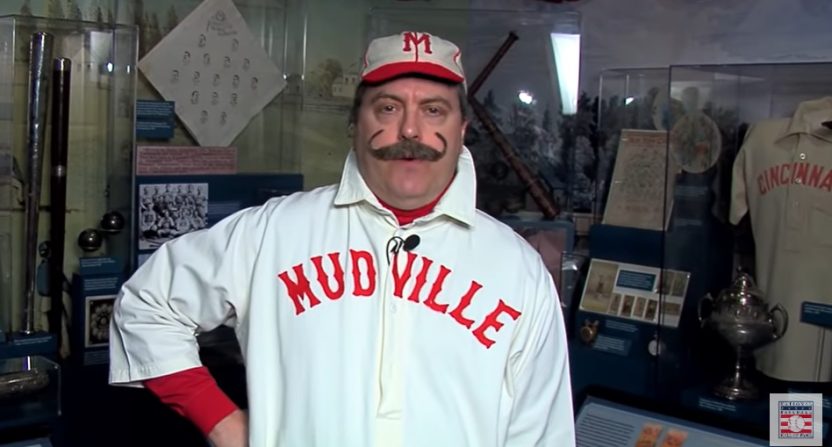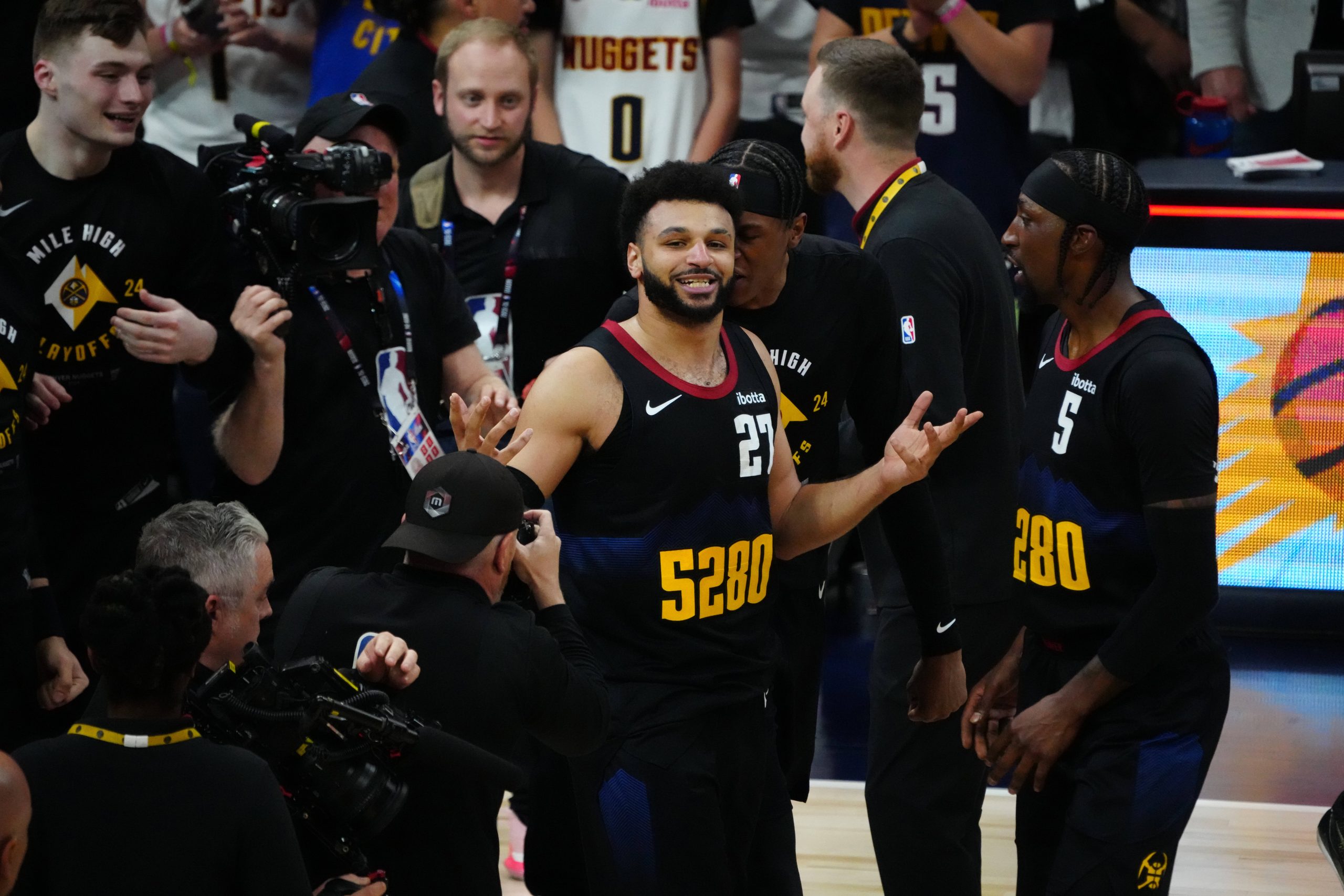Casey at the Bat. It’s a classic poem by Ernest Lawrence Thayer that sees the main character, Casey, go from hero to goat in three simple pitches when he strikes out at the end of a big game. It’s a great baseball poem but also teaches strong life lessons about the dangers of overconfidence.
On the surface, it makes sense to blame Casey for the loss. He’s clearly the team’s best hitter. After all, the fans would “put up even money with Casey at the bat,” even though the team was trailing by two runs with two outs in the ninth inning. Against all odds, Casey gets to the plate. He represents the winning run with the tying run on second. But he doesn’t get serious until he faces an 0-2 count, then swings and misses at the third pitch, ending the game.
And make no mistake, we’re not here to let Casey off of the hook. But as a young sports fan, my mother would always remind me that it never comes down to just one thing. Yes, the kicker missed the last-second field goal. Yes, the closer blew the save. But in both cases, an entire game led to that moment and maybe if those games had gone differently, the kicker and closer in question wouldn’t have been in such a tight spot.
So, yes, Casey is a goat of the game. But he’s not the only one. In fact, we’ll even argue that he wasn’t the biggest goat.
That title goes to the unnamed manager of Casey’s Mudville nine.
Casey at the Bat, Ernest Lawrence Thayer (poets.org)
The outlook wasn’t brilliant for the Mudville nine that day:
The score stood four to two, with but one inning more to play,
And then when Cooney died at first, and Barrows did the same,
A pall-like silence fell upon the patrons of the game.
A straggling few got up to go in deep despair. The rest
Clung to the hope which springs eternal in the human breast;
They thought, “If only Casey could but get a whack at that—
We’d put up even money now, with Casey at the bat.”
But Flynn preceded Casey, as did also Jimmy Blake,
And the former was a hoodoo, while the latter was a cake;
So upon that stricken multitude grim melancholy sat,
For there seemed but little chance of Casey getting to the bat.
We learn some things from this passage. One, phrases like “a pall-like silence” and “grim melancholy” tell us that this is a big game. This isn’t some early-season game in a year with months worth of games remaining. Mudville likely needs this win.
Knowing that, it’s probably safe to assume that this isn’t a planned rest day for Casey, when the manager decided to use him in the late innings.
Remember, even though the team is trailing by two runs, the fans would “put up even money” if Casey got to the plate. He’s clearly the team’s best hitter. In a must-win game, your best hitter is in the lineup. And if he wasn’t starting the game, why not?
But Flynn let drive a single, to the wonderment of all,
And Blake, the much despisèd, tore the cover off the ball;
And when the dust had lifted, and men saw what had occurred,
There was Jimmy safe at second and Flynn a-hugging third.
Here, we truly learn how bad Flynn and Blake were. Even in the era before the universal designated hitter when pitchers had to bat, singles did not inspire “wonderment.”
So why are Flynn and “the much despisèd” Blake batting immediately in front of Casey, the best hitter on the team? Again, there’s ample reason to think that this is a big game, so Mudville is obviously a good team. There had to be better options to hit immediately in front of Casey, giving him the best chance to do the most damage possible in his at-bats.
Then from five thousand throats and more there rose a lusty yell;
It rumbled through the valley, it rattled in the dell;
It pounded on the mountain and recoiled upon the flat,
For Casey, mighty Casey, was advancing to the bat.
Again, operating under the assumption that this is a big game, Casey should have been starting. There is one potential exception, however. Maybe Casey was injured and used as a late-inning pinch hitter.
The most famous real-life example of this came 100 years after the poem was written, when National League MVP Kirk Gibson famously hit a walk-off home run against Dennis Eckersley in Game 1 of the 1988 World Series, giving the Los Angeles Dodgers a stunning Game 1 victory over the heavily-favored Oakland Athletics.
But Gibson was not used in that game until Mike Davis, himself a pinch hitter, reached base as the tying run. In fact, watching documentaries about that game, some of Gibson’s teammates made it clear that it wasn’t until Davis stole second base that the Dodgers truly felt that Gibson could bring him in as the tying run.
Because while Gibson was a feared power hitter throughout that 1988 season and his entire career, he was injured during the World Series. It wasn’t hyperbole when Vin Scully, calling the game for NBC, famously said “In a year that has been so improbable, the impossible has happened.” Nobody saw Gibson as a power threat. If they did, he would have either started the game or at least pinch-hit when Davis did, representing the tying run.
Even assuming that Casey didn’t start because he was hurt, this is the first of two times in the poem when Thayer refers to him as “mighty Casey.” So, he might have been dealing with a nagging injury, but he still had pop in his bat. He needed to be up there pinch-hitting for Blake as soon as Flynn hit the single. By letting Blake bat for himself, the manager was playing with fire.
There was ease in Casey’s manner as he stepped into his place;
There was pride in Casey’s bearing and a smile lit Casey’s face.
And when, responding to the cheers, he lightly doffed his hat,
No stranger in the crowd could doubt ’twas Casey at the bat.
Ten thousand eyes were on him as he rubbed his hands with dirt;
Five thousand tongues applauded when he wiped them on his shirt;
Then while the writhing pitcher ground the ball into his hip,
Defiance flashed in Casey’s eye, a sneer curled Casey’s lip.
And now the leather-covered sphere came hurtling through the air,
And Casey stood a-watching it in haughty grandeur there.
Close by the sturdy batsman the ball unheeded sped—
“That ain’t my style,” said Casey. “Strike one!” the umpire said.
From the benches, black with people, there went up a muffled roar,
Like the beating of the storm-waves on a stern and distant shore;
“Kill him! Kill the umpire!” shouted someone on the stand;
And it’s likely they’d have killed him had not Casey raised his hand.
With a smile of Christian charity great Casey’s visage shone;
He stilled the rising tumult; he bade the game go on;
He signaled to the pitcher, and once more the dun sphere flew;
But Casey still ignored it and the umpire said, “Strike two!”
While we’re looking at people other than Casey, we have to look at the opposing manager and pitcher. At least one of these two needed to have his head or bank account examined.
With first base open and the tying run in scoring position, they not only elected to pitch to Casey but went right after him. Sure, maybe the first pitch was on the corner. And of course, walking Casey would mean putting the winning run on base.
But given how good Casey is, you’d figure they’d at least pitch around him. That was not the case.
“Fraud!” cried the maddened thousands, and echo answered “Fraud!”
But one scornful look from Casey and the audience was awed.
They saw his face grow stern and cold, they saw his muscles strain,
And they knew that Casey wouldn’t let that ball go by again.
The sneer is gone from Casey’s lip, his teeth are clenched in hate,
He pounds with cruel violence his bat upon the plate;
And now the pitcher holds the ball, and now he lets it go,
And now the air is shattered by the force of Casey’s blow.
Oh, somewhere in this favoured land the sun is shining bright,
The band is playing somewhere, and somewhere hearts are light;
And somewhere men are laughing, and somewhere children shout,
But there is no joy in Mudville—mighty Casey has struck out.
First, we have to revisit the notion that the opposing manager and/or pitcher were at least, extremely lucky. Up 0-2 in the count, they decided to challenge Casey. If there’s ever a time to throw one well outside of the strike zone and hope the hitter chases, it’s there. That did not seem to happen here.
Two, we need to reiterate, Casey is not let off of the hook here. Sure, modern sensibilities have “taken the shame” away from the strikeout. But even today, if there’s ever a time to shorten your swing and be sure the ball is put in play, it’s when you’re down 0-2 in the ninth inning with the tying run on second base. In 1888, before Babe Ruth was even born, that was certainly the strategy. Casey should not have been swinging for the fences here.
And Casey should not have let the first two strikes go by him so casually. The best pitch to hit might be the first one you see. And down in the game with the tying run on base is not the time to work the count. At the very least, you need to be locked in, trying to get the pitcher’s timing down. It didn’t seem like Casey did that here. So, much like the closer who blows the save or the kicker who shanks the winning field goal attempt, he deserves plenty of blame.
But this was clearly a big game and under no scenario that we can think of did the Mudville manager put his team in the best position to win. If Casey was in the starting lineup, said lineup seemed to be at best, drawn out of a hat. If he was a substitution, he either shouldn’t have been or should have been used earlier. And if the manager erred so egregiously with how he handled Casey, we have to wonder what other mistakes he made, both during the game in question and the season leading up to it.
Maybe Mudville should have already been the champions. Or, if nothing else, maybe the team should have been in a better situation than trailing 4-2 in the final inning. If the manager was more on the ball, Mighty Casey’s fabled final at-bat may not have ever happened.
[poets.org, Photo Credit: National Baseball Hall of Fame and Museum on YouTube]





